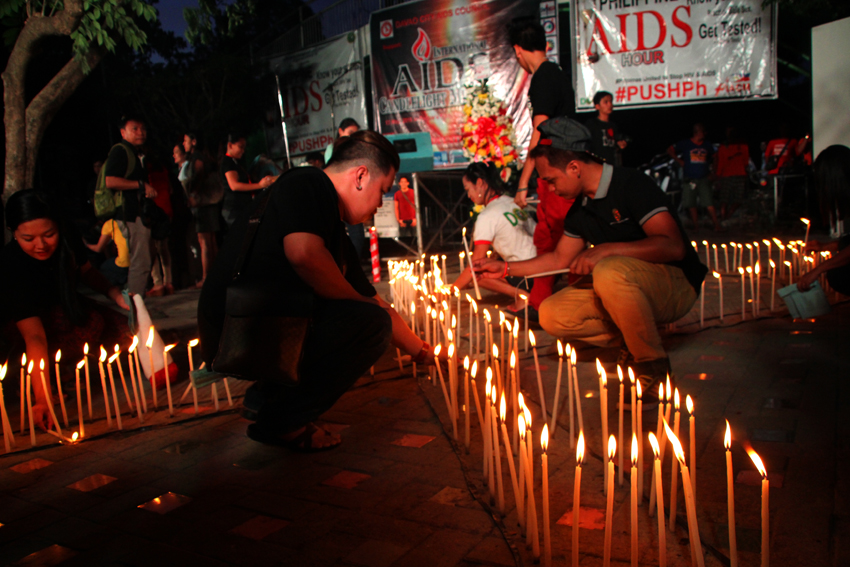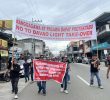
In this file photo, various organizations commemorate the International AIDS Candlelight Memorial for those who die of the disease and those who are now carrying it. The memorial activity is held at the People’s Park in Davao City on May 13, 2016. (davaotoday.com file photo)
DAVAO CITY, Philippines—The National Council of Churches in the Philippines calls for the government to expand a fast, free and voluntary screening of the Human immunodeficiency virus infection and acquired immune deficiency syndrome for the general public.
The NCCP along with its member-organizations issued such call as a response to the continuing rise of cases of HIV/AIDS in the country.
“While HIV disproportionately affects people who are pushed from the mainstream of our society, it is the HUMAN immunodeficiency virus that affects all human beings. Targeting certain sectors only continues to feed the stigma that these populations are responsible for HIV,” said Rev. Rex Reyes, Jr., NCCP general secretary, in a statement on Sunday.
“We strongly advocate provision for special care for people who experience higher risk factor because of stigma and societal exclusion, while emphasizing that ending AIDS means expanding knowledge and testing campaigns to the general population,” he added.
As of February 2017, the total number of people living with HIV in the country is 37, 653, according to the Department of Health. Health officials noted an increase of 18 percent in terms of the number of cases of HIV last year compared to the year before with 9,200 Filipinos who tested positive for the virus, while in 2015 there were only 7,829.
AIDS-related deaths and prevention of HIV transmission could be reduced at the early stage if an individual had started the treatment early through the use of anti-retroviral drugs based on the documented cases by the World Health Organization and the Joint United Nations Program on HIV/AIDS (UNAIDS).
The NCCP has advocated for stigma-free HIV testing and in fact, it worked with the Department of Health trained HIV organizations such as the Project Red Ribbon and HIV/AIDS Support House for its community-based screening in 2016 where its church members, lay, clergy and bishops were screened.
CBS Motivator and pastor Joseph San Jose of MCC-QC said the new HIV screening process differs from the standard process in speed, anonymity, and blood extraction.
“The new process only gathers a code and contact information; produces results in 15 minutes; and only extracts a drop of blood from a finger prick. While the old process gathers personal information; produces results in more or less two hours; and a syringe of blood is extracted,” he said.
The call of churches to government to provide effective and efficient programs to respond to the fast rising HIV and AIDS cases is part of the overarching demand for a free, comprehensive, and progressive healthcare system.
“Few of the effective ways to respond to the global call end AIDS by 2030 is for the government to allocate at least 5% of the Gross Domestic Product for health in the national budget, stop privatization, address the inequitable distribution of health personnel and resources, and address socio-economic and political factors affecting health,” Reyes pointed out. (davaotoday.com)








